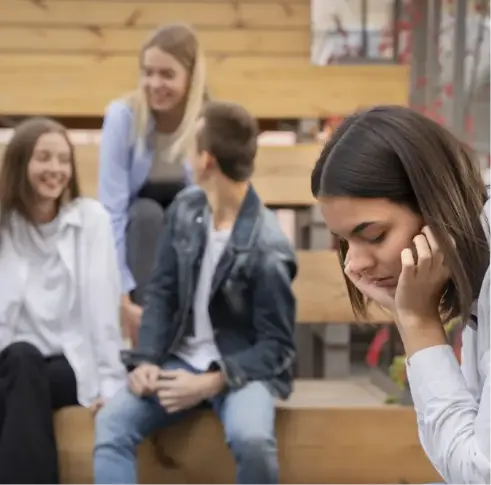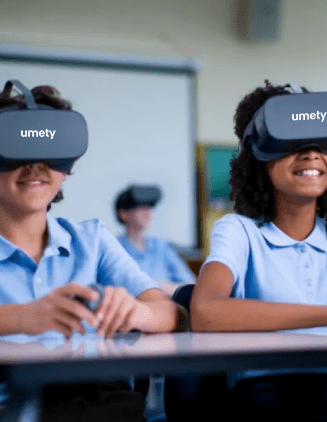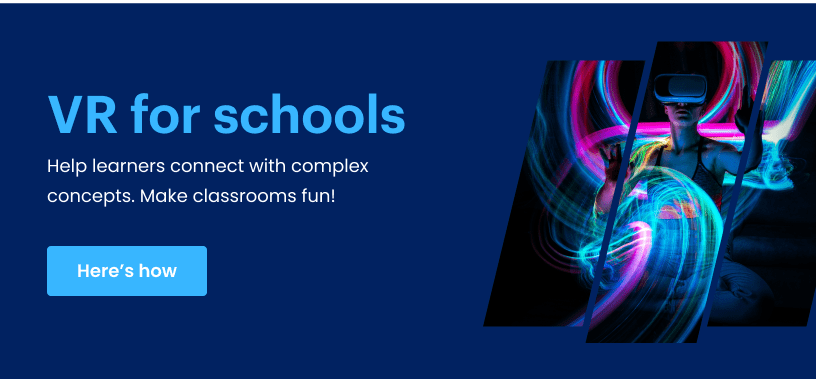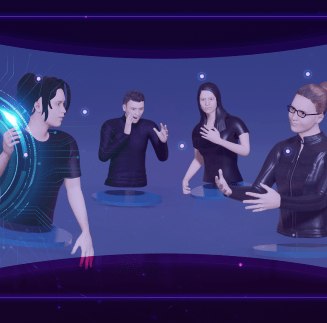Schools
Never a dull moment! VR makes learning easy and fun!
Being a part of a virtual environment is almost like being on an adventure ride!

Do you ever find yourself concerned that your students might not be fully engaged during your lectures, or that the knowledge you impart seems to slip away as soon as they leave the classroom? If so, you’re not alone. It’s a classic case of students feeling a bit like squirrels during lessons – easily distracted and disengaged for a whole bunch of reasons. Whether it’s daydreaming about which game to play after school or simply a tricky concept that’s too hard to grasp, it is normal for students to feel distracted and disengaged.
But there’s good news—technology is changing the game! With the use of technology in education, students can feel more engaged with lessons in ways that are immersive, interactive, and fun. So, get students up and moving, and watch as they retain information like never before.
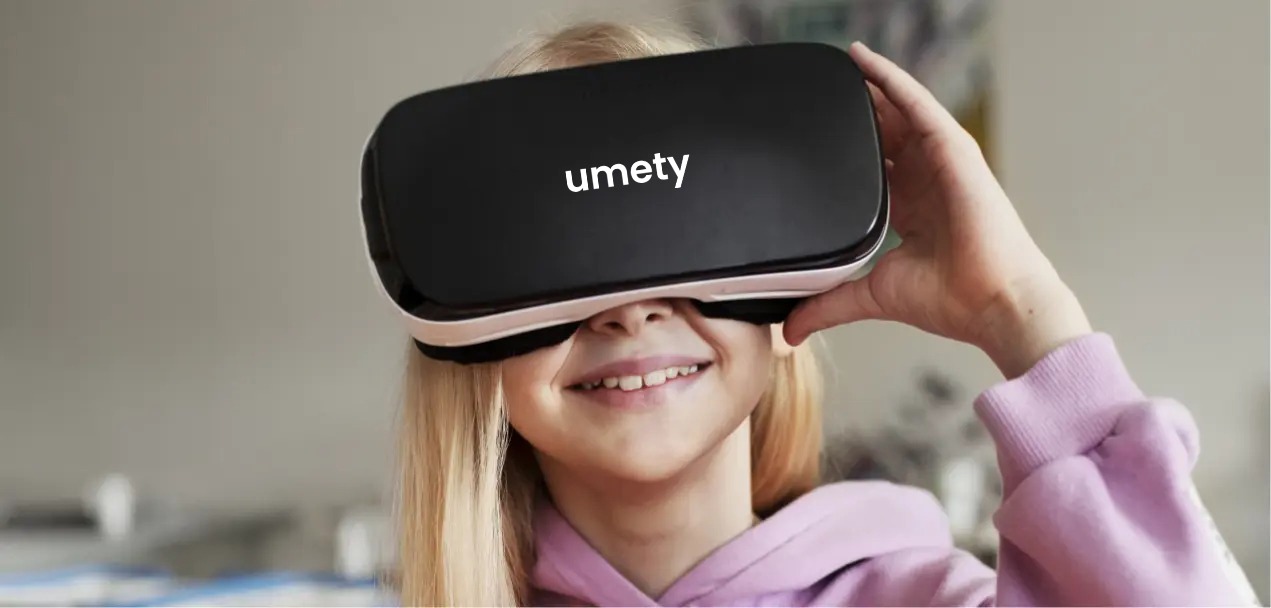
The ultimate learning adventure
Picture this: instead of standing at the front of a classroom for 6 hours, you can make your students put on a VR headset and let them understand concepts on their own. Wondering how to make history lessons interesting? Let your students immerse themselves in VR and explore ancient ruins or be transported back in time to witness historical events firsthand without you being involved in the process! Or, if you’re wondering about complex biology lessons, let them shrink down and explore the inner workings of the human body. This is the importance of technology in education; it makes learning and teaching what they are supposed to be: easy and fun! Whatever a student learns in VR happens in a completely immersive environment, creating a learning experience that’s unforgettable. But how does that happen?
As an immersive technology, VR transports you to a different world, allowing you to experience education in a whole new way. By putting students in the middle of the action, VR makes learning exciting, engaging, and less tiring for the teacher. Wondering what else is special about VR?
When students experience something in VR, they are more likely to remember it than simply reading about it in a textbook. This is because VR engages multiple senses and allows them to interact with the content in a more meaningful way. For example, if they are learning about the solar system, they can fly through space and see the planets up close in VR, which is much more memorable than reading about them.
Since VR allows students to experience things that would be impossible or impractical in the real world, it makes learning fun and exciting. Take the example of exploring the inside of a cell or dissecting the anatomical structure of the heart—it's not feasible to deliver such an arrangement in a classroom but in VR, it's a piece of cake!
No matter how hard a teacher tries to manage the classroom, there are chances that learners remain distracted still. Whereas students immersed in the virtual world can focus entirely on learning a concept without distractions of the outside world.
With VR, students can learn at their pace and in their way. So, no matter if a student understands a concept in two minutes of explaining or two hours, they can learn it in VR without any judgment. It not only saves the learner's time but also makes the teaching process more efficient for the teacher.
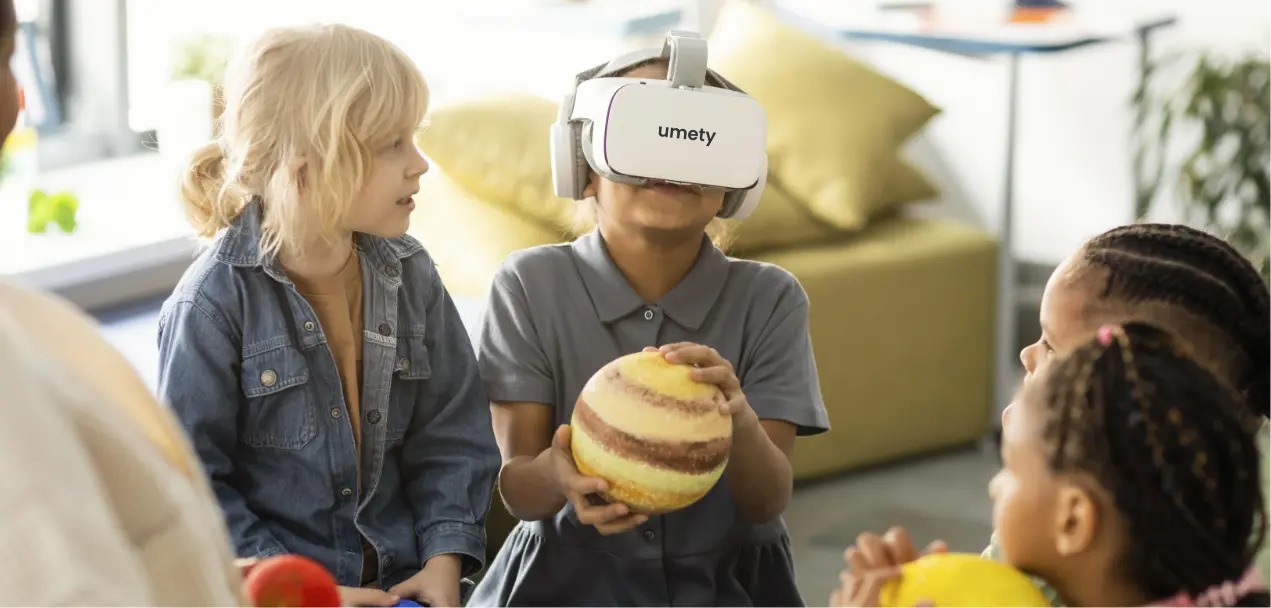
Although traditional teaching methods are an important part of education, one must not forget about the most important part of learning–having fun! With the contribution of technology in education like VR, learning can be transformed into an exciting adventure, where learners are motivated to explore and discover. No longer do students have to go through long lectures and tedious assignments. Instead, they can dive headfirst into a world of endless possibilities and have a blast while learning.

Get stories selected just for you, right in your inbox.

Get stories selected just for you, right in your inbox.
This might interest you
